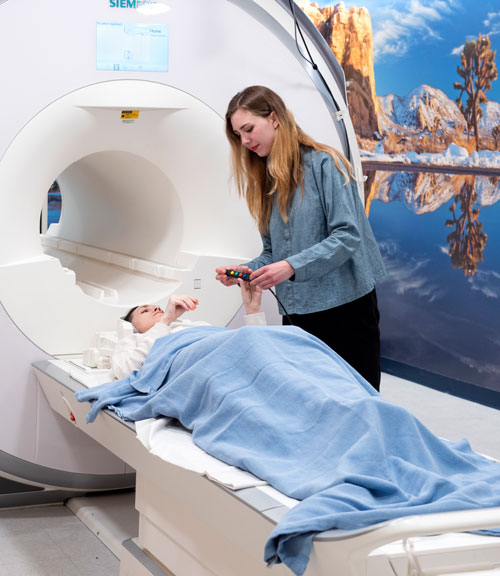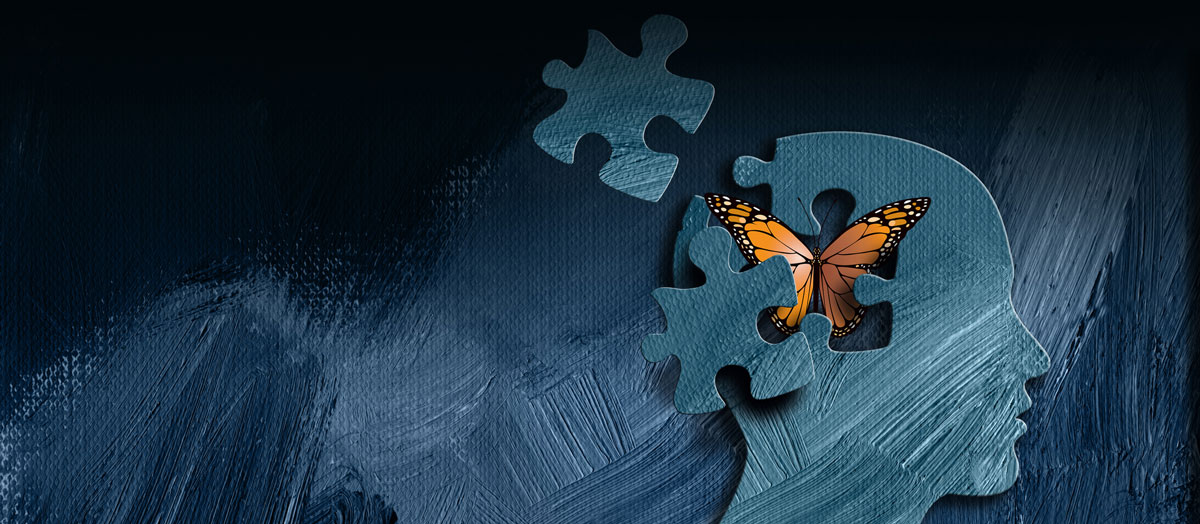About
The research in our lab focuses on how memories are formed and retrieved and how different brain structures are involved in these processes. Additionally, we are interested in how memory formation and retrieval may change in relation to mood and mood related disorders (such as depression). We use several different methods to investigate these questions, including computerized behavioral tests, cognitive tests, and brain imaging. Below are descriptions of several research studies related to mood that are ongoing in the lab. If you are interested in participating in one of these studies, please visit our Participate in Studies page.
Project Areas:

Depression
When people talk about Major Depressive Disorders, the first thing people may think about are persistent sadness, feelings of worthlessness, or loss of energy. One prevalent but less commonly associated symptom: memory loss.
This memory impairment has been attributed to abnormalities in both the hippocampus and the amygdala. The hippocampus is critical for declarative memory storage, while the amygdala modulates the strength of emotional memories.
This is where we come in.
Our group has a history of developing tasks that use pattern separation, the neural process enabling the storage and retrieval of similar yet distinct experiences. In the context of this study, we are utilizing an Emotional Pattern Separation task that taxes that pattern separation process using Positive, Negative and Neutral scenes as opposed to everyday objects. By concurrently manipulating interference and emotional content, this task can be used to examine amygdala modulation of hippocampal memory. By applying this new technique with high resolution fMRI imaging to patients with Major Depressive Disorder (along with other comorbid psychiatric disorders) we can pave the way for more targeted clinical interventions and treatments related to memory impairment in mood disorders.
Impact
Future Studies
Grief
The unexpected loss of one’s child is an unimaginably difficult experience. Yet for some mothers in the local community, this is a tragic reality that they have experienced. Their worlds have changed permanently, and in more ways than one might expect.
Mother’s from a local grief support group, have described that after the unexpected loss of their adult (18+ year old) children, that they are experiencing a surprising phenomenon. In addition to feelings of sadness and grief over the loss, these women are reporting cognitive impairment, difficulties with their memories and daily functioning that are persisting years to decades after the initial loss of their child.
Our lab has partnered with these brave local mothers to attempt to answer the question. What is happening to the brain circuitry in maternal grief? And how might this contribute to the cognitive complaints and impaired functioning that these women are reporting. We hope that by examining this we can really validate the claims and experiences of these women on a subject that is not often explored, due to our societal taboos around discussing grief and loss.
In this study we used a novel fMRI task that is customized to each of the individuals in the study, in order to explore the underlying changes and differences in the brains of these grieving mothers in a way that is respectful and considerate of the difficult experiences their families have faced.
Impact
By furthering our understanding of grief, we can pave the way for potential interventions that can help ameliorate the negative impacts on day to day cognitive functioning.
Future Studies
Early-life Experiences and Mood Disorders
Often what we can accomplish alone is only a small fraction of the work that we can accomplish when we work together.
Collaboration is an extremely valuable tool in science, and is something our lab values at its core as seen by our involvement and contributions to groups such as the CONTE Center @ UCI.
The ultimate goal of the center is to better understand how early-life experiences influence brain development and mediate vulnerabilities to mental illnesses. The common approaches for investigating these questions are to identify novel early life stressors, employ a neurodevelopmental framework, and to make cross-species evaluations.
Our lab leads the imaging core for the CONTE Center. The goal of the imaging core is to provide support to the other projects in the center, and to work on imaging specific hypotheses. Of particular interest are the identification of aberrant and sex-specific patterns and trajectories in pleasure/reward circuitry that link early life experiences to anhedonia and risk for psychopathology.
Impact
Future Studies
Anhedonia – The Loss of Pleasure
Different mood disorders can share symptoms. People with depression, schizophrenia, or anxiety often report loss of pleasure in life. They no longer feel pleasure from spending time with friends or engaging in other activities they once found rewarding. This symptom is called anhedonia: The loss of pleasure from things one once found pleasurable. For doctors, a patient that reports anhedonia is a patient at-risk because it is hard to treat anhedonia and those with it are at higher risk for suicide. Effective treatments will improve the quality of life by giving back lost pleasure in life. Because anhedonia is present in various mood disorders, by targeting anhedonia we can discover how to treat many mood disorders.
We are currently studying the brain changes in patients experiencing anhedonia. Does the brain of someone with anhedonia ‘get caught’ in certain brain patterns, compared to someone who does not have anhedonia? Can we use these patterns to predict anhedonia, instead of relying on patient self-report? We are also working with the CONTE Center @ UCI to understand how stress impacts the brain’s reward areas and can lead to anhedonia as children develop.
Impact
By understanding how brain changes relate to a loss of pleasure, we can develop better treatments for many mood disorders.
Future Studies
- How does our ability to remember pleasurable things from our past relate current symptoms of anhedonia?
- How does anhedonia impact how we learn and make decisions about things that are rewarding?
- Can we use memories for the rewarding experiences of our past to shape our choices?
Project Team

Gimarie Martínez
Graduate Student

Mithra Sathishkumar
Imaging Analyst
